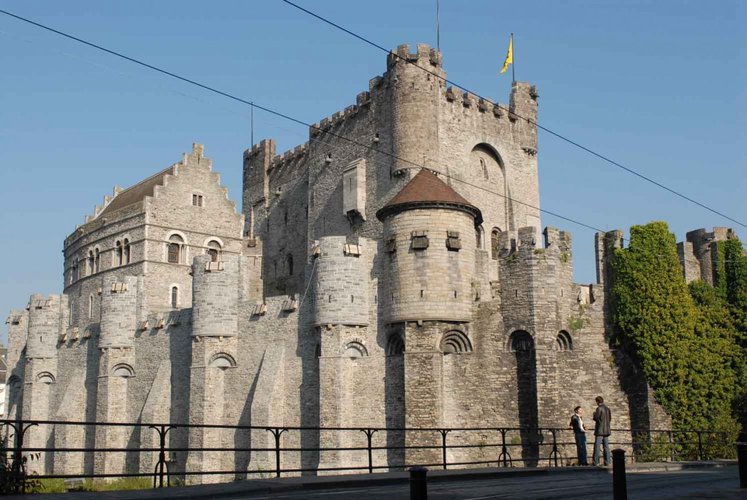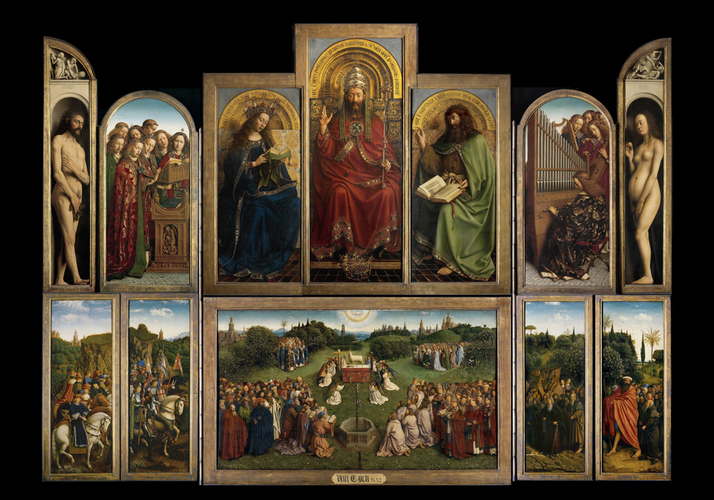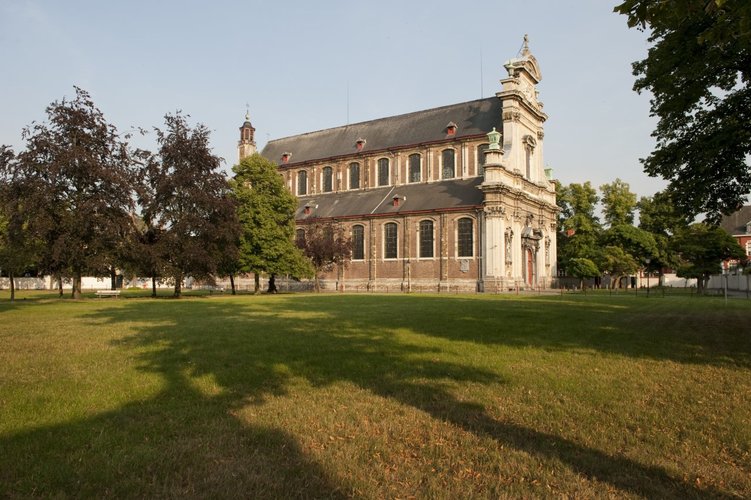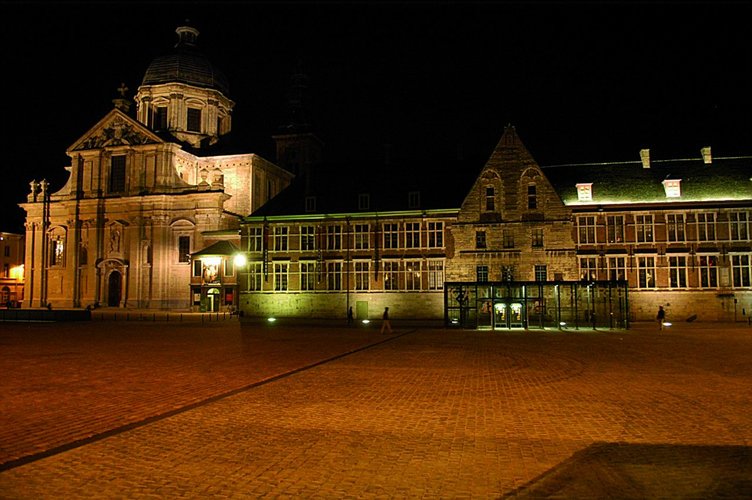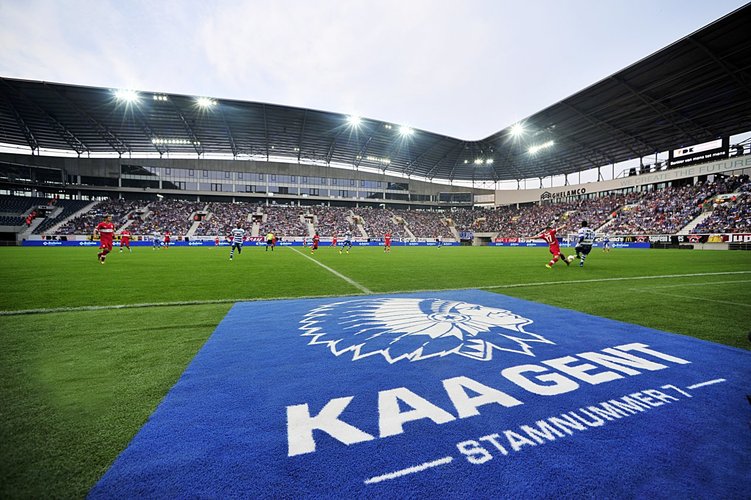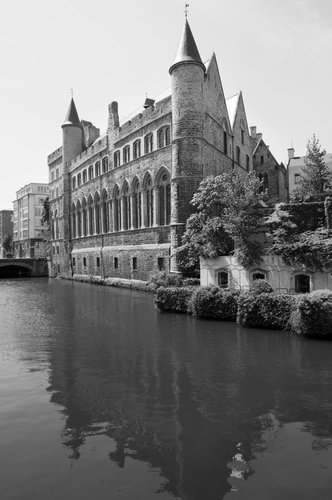Overview
The "Fairness in Sports" workshop aims to bring together researchers and practitioners with an interest in sports research, and fairness issues in particular.
Fairness in sport is not just about assigning the top prizes to the worthiest competitors. It is also about the way the competition itself is organized. How to design rules that do not favor certain competitors? How to design a schedule of play that a priori offers similar chances to each participant? How to reconcile various (often conflicting) requests expressed by the stakeholders? It seems that as financial interests in sports increase, fairness is increasingly under pressure, and research on fairness issues in sports is becoming more and more relevant.
The workshop focusses on scientific methods to achieve greater fairness in sports, both from a theoretical and a practical point of view. Topics will include i.a. tournament scheduling and rule design. Methods will mainly include operations research.
The workshop will be a 1-day event, which will take place on April 12th 2018, and is hosted at Ghent University in Belgium.
The workshop will not have an open call for papers, but if you have interesting work to present related to fairness in sports, you are more than welcome to contact Dries.Goossens@UGent.be.
The workshop is sponsored by the Belgian Operational Research Society, and the EURO working group OR in Sports.
Keynote Speakers
Jörn Schönberger
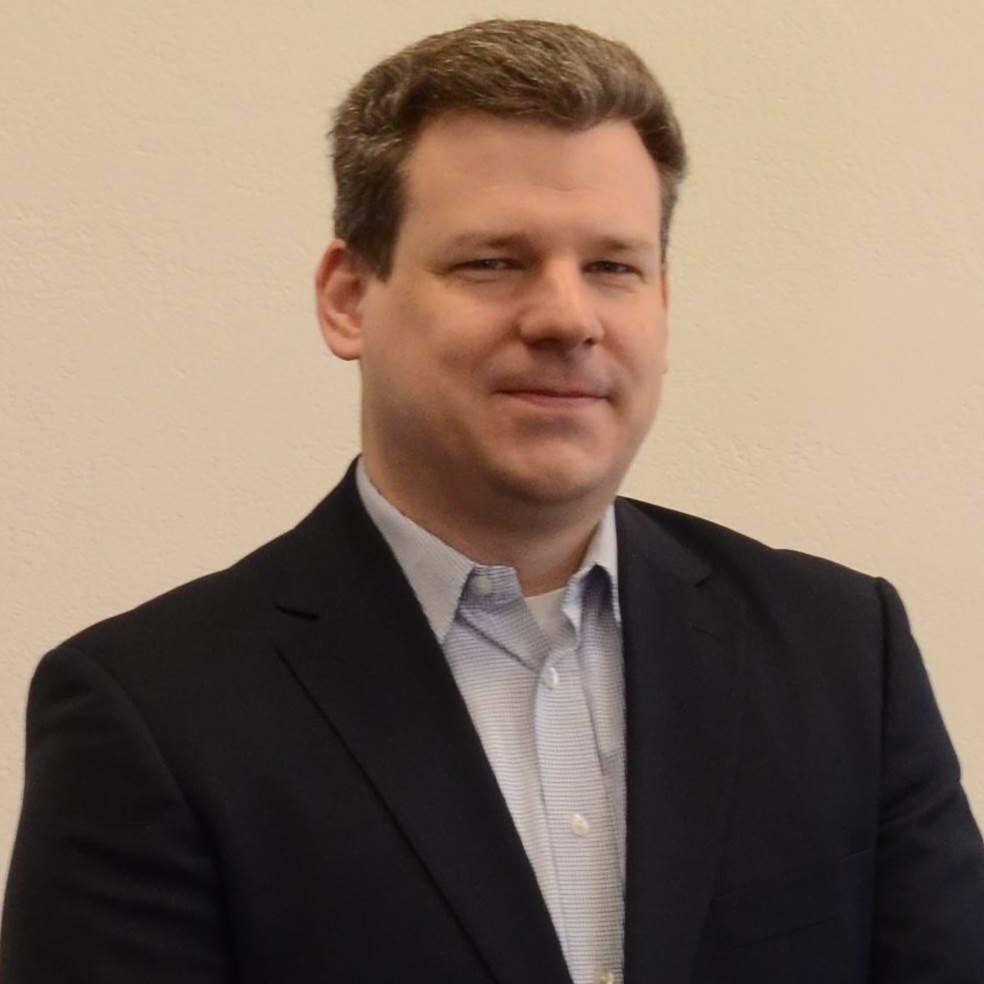
Biography
Jörn Schönberger is professor for business management at the Technical University of Dresden where he positions the Chair of Transport Services and Logistics. His research interests comprise model-based optimization and control of complex logistics systems. Furthermore, he investigates the synchronization of information and material flows. Based on methodologies from Mathematics, Operations Research, Artificial Intelligence and Information systems, he investigates applications from the fields of logistics, transportation, manufacturing, and sports management.
Implementing Fairness Aspects in the Schedules of Non-commercial and Leisure Sport Leagues
Today, non-commercial as well as leisure sport clubs have to care for their members. Their availability is compromised by extended labour requirements, family affairs as well as other leisure activities. A professional organisation of competitions is a key success factor to attract players and keep the sport leagues running in a reliable fashion. In this setup fairness is typically understood as the consideration of player availability issues so that no team feels being discriminated. Sport league organizers like regional or local sport associations can provide the base for the club’s efforts to install or enforce strong relations with their members who are the players in teams. Two issues are relevant. First, the limited venue capacities of clubs must be considered. Second, player replacement opportunities granted by the rules (substitution) can be used to complete teams in case of player’s unavailibility so that the complete competition program of a match can be processed. Both issues contribute to a reliable competition programm desired by most of the players and their clubs. In order to ensure that venue availability as well as substitution opportunities are respected it becomes necessary to integrate the schedule composition of all leagues in which teams of a club participate. The resulting decision problems are very hard to solve. In this talk we propose a prototypic decision support system for the compilation of several leagues in parallel so that the specific fairness issues in non-commercial and leisure sport leagues are considered. We give insights into computational results observed for a scenario of a regional tabletennis association.
Ruud H. Koning
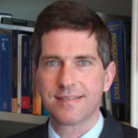
Biography
Ruud Koning is professor of Sports Economics at the University of Groningen, The Netherlands. He has published different empirical studies in this field, focusing on measurement of performance and competition, and development of information. He and his students have collaborate with the Innovation Lab at the Thialf skating venue in Heerenveen.
So the last will be the first.
Sport fans value the uncertainty of the outcome of a sporting contest, in fact, one may argue that this uncertainty is one of the defining characteristics of sports (Fort (2006), Szymanski (2003)). Uncertainty of outcome can be regulated by choosing a certain competition format. Different tournament types have different incentives for the participants. It is well known that average effort provided by equally skilled athletes decreases with the number of participants in a winner take all contest. Some tournament types base ranking on some absolute measure of performance, so essentially all athletes compete against each other, even though they may not compete simultaneously. In such a case, incentives are similar to the ones in a single rank order tournament, and so is effort provided. In this paper we focus on speed skating. A speed skating event (say, 1500m men) usually has approximately 20 participants, who skate against each other in pairs. Finishing time is recorded and after all participants have skated, the one with the fastest time wins. Even though each skater has only one direct opponent, he effectively competes against all participants. However, skaters in later pairs have an advantage over earlier skaters: they know the time to beat in order to lead the ranking at that moment. To assess the informational advantage of later skaters, we estimate a flexible model where their performance depends-among other things-on the best time skated so far. In most tournaments the order of skaters is determined by performance in earlier events, so in our model we allow for this by incorporating individual effects. We find a small and significant effect of the best time skated so far: if the best time skated so far decreases by 1 second, performance of the skater improves by approximately 0.5%. Even though this effect appears to be very small, it may be significant as the time difference between top places of important tournaments may be tiny.
Philip A. Scarf

Biography
Philip A. Scarf is a statistician and operational researcher at the University of Salford, UK, and is chair of Mathsport International, the conference series that brings together mathematics and sport.
Planning a fair orienteering event
In the orienteering problem a set of nodes is given, each with an assigned score. The goal is to determine a path, starting at a node S and finishing at a node F and of length at most L, that maximises the sum of the scores of the visited nodes. Let us suppose that the nodes are assigned scores according to a scheme S in which ni of the nodes have score si for i=1,…,k. And let us suppose further that the scheme is not fixed but subject to a set of loose constraints that means S does not “vary too much”. Consider now a set of competitors C each of whom has a path-length limited to Lj (because of their speed through the network) (with j indexing the competitors in C). We shall call the orienteering problem “fair” if the maximum score possible for competitor j is proportional to Lj for all j in C. Two questions arise. First, is this a good definition of fair in this context? Second, how can one determine a fair assignment of the scores to the nodes in the scheme S?
Mehmet S. Ismail
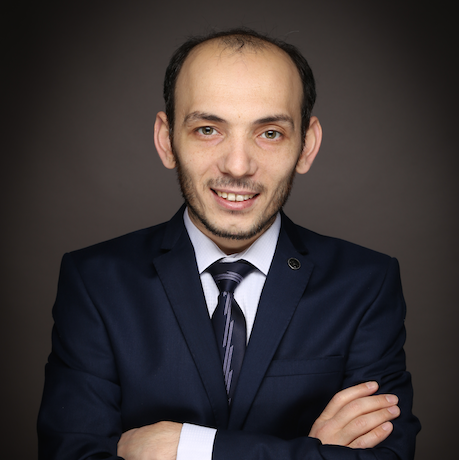
Biography
Mehmet S. Ismail is a Teaching Fellow in Economics in the Department of Political Economy at King’s College London. He holds a PhD in Economics from Maastricht University. During his doctoral studies, he made a research visit for a semester to the Department of Politics at New York University. His research interests are mainly in Microeconomics, Game Theory, Behavioral Economics, Political Economy, Decision Theory, and Sports and contests.
Catch-Up: A Rule that Makes Service Sports More Competitive (with Steven J. Brams, D. Marc Kilgour, and Walter Stromquist)
Service sports include two-player contests such as volleyball, badminton, and squash. We analyze four rules, including the Standard Rule (SR), in which a player continues to serve until he or she loses. The Catch-Up Rule (CR) gives the serve to the player who has lost the previous point - as opposed to the player who won the previous point, as under SR. We also consider two Trailing Rules that make the server the player who trails in total score. Surprisingly, compared with SR, only CR gives the players the same probability of winning a game while increasing its expected length, thereby making it more competitive and exciting to watch. Unlike one of the Trailing Rules, CR is strategy-proof. By contrast, the rules of tennis fix who serves and when; its tiebreaker, however, keeps play competitive by being fair - not favoring either the player who serves first or who serves second.
Gianfranco Gambarelli
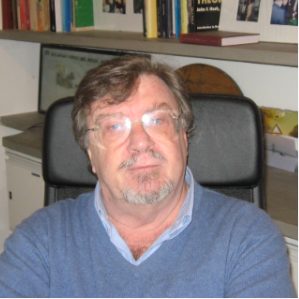
Biography
Gianfranco Gambarelli is an Emeritus Professor at the University of Bergamo, Italy. Previously, he has been Dean of the Faculty of Economics and full professor of Mathematics, Theory of Games and Decisions at the Department of Management, Economics and Quantitative Methods. He belongs to the Editorial Boards of several revues, has been editor of several Special Issues and author of hundreds of scientific papers. He has been visiting professor In a lot of Universities of four continents. His research interests include Computer Science, Decision Theory, Game Theory and related applications to Politics and Finance, Geometry, Integer Programming, History of Mathematics, Sport Sciences and Transportation Theory. Winner of several literary prizes, he presided over the Orobic Cenacle of Poetry for a decade.
Anti-collusion Averages
Several quantitative judgements are affected by unreliability, such as the referees being inexpert, or under the influence of exogenous factors. For instance, they might in some way be involved in the outcome of their own evaluations. Moreover, such distortions may be considerably increased through collusion between judges sharing common interests. There are many fields in which all the above may occur: Economics (e.g., estimate, or project evaluation), Finance (e.g., company quotation), Insurance (e.g., customized insurance policies), Arts (e.g., music competitions), artistic sports (such as rhythmic gymnastics, figure skating, synchronized swimming and diving), and so on. In order to avoid taking bad data into account in the synthesis of collective valuations, classical methods give little or no weight to the tails of distributions. This creates problems in the case of asymmetries, because good data may be undervalued while bad data may be overvalued. Some methods have been developed as a solution to such cases: For instance, the Coherent Majority Average (Gambarelli, 2008) considers only those scores that are , in majority, close to each other, while the Anti-collusion Average (Gambarelli and Uristani, 2010) solves problems where valuations are supplied by sub-committees whose results must be synthesized in terms of general averages. The latter average was applied to sports regulations by Gambarelli, Iaquinta and Piazza in (2012). In this talk these averages are described and discussed in function of further possible applications.
Gerard Sierksma
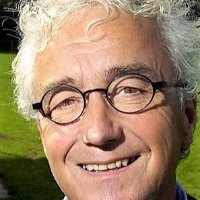
Biography
Gerard Sierksma is an emeritus professor of operations research and sport statistics at the University of Groningen, Netherlands. Although he has a PhD in pure mathematics, his main interest at the moment is applying mathematics and statistics for analyzing elite sport performances. In this respect he is an advisor of the Dutch Olympic Committee (NOC*NSF), especially for designing selection procedures for Olympic athletes. Besides his two operations research books (Networks in Action, Springer 2010, and Linear and Integer Optimization, Theory and Practice, CRC Press 2015), he wrote three books on performance rankings in soccer, speed skating, and Tour de France cycling.
Performance Densities in Elite Sports
With the performance differences between competing top athletes becoming smaller and smaller, sometimes even within the error margins of the measuring systems, comparing performances and deciding on winners are becoming perilous affairs. Yet, they are of utmost importance: wrong decisions of the referee (system) may have disproportionate consequences. On the other hand, exceptional performances seem to become rarer and rarer, and too easily labeled as a result of ‘doping’. What aspects are responsible for these two interrelated phenomena in elite sports? We will relate these phenomena to the so called Gould hypothesis: when the level of competition increases over the years, the variation in top performances decreases steadily and extreme events are becoming rarer and rarer. Gould has observed this phenomenon for the case of baseball. It brings us to the question of whether the Gould effect exists and can be measured for other sports, like speed skating and soccer. In this respect, we will also discuss the impact of increasing (almost) ex aequo top performance situations.
Julien Guyon

Biography
Julien is a senior quantitative analyst in the Quantitative Research group at Bloomberg L.P., New York. He is also an adjunct professor in the Department of Mathematics at Columbia University and at the Courant Institute of Mathematical Sciences, NYU. Before joining Bloomberg, Julien worked in the Global Markets Quantitative Research team at Societe Generale in Paris for six years (2006-2012), and was an adjunct professor at Universite Paris 7 and Ecole des ponts. He co-authored the book Nonlinear Option Pricing (Chapman & Hall, CRC Financial Mathematics Series, 2014) with Pierre Henry-Labordere. His main research interests include nonlinear option pricing, volatility and correlation modeling, and numerical probabilistic methods. Julien holds a Ph.D. in Probability Theory and Statistics from Ecole des ponts. He graduated from Ecole Polytechnique (Paris), Universite Paris 6, and Ecole des ponts. A big football fan, Julien has also developed a strong interest in sports analytics, and has published several articles on the FIFA World Cup, the UEFA Champions League, and the UEFA Euro in top-tier newspapers such as The New York Times, Le Monde, and El Pais, including a new, fairer draw method for the FIFA World Cup.
World Cup draw: quantifying (un)fairness and (im)balance
In 2014, we critically examined a number of flaws in the procedure that FIFA had been using for decades for the final draw of the World Cup: imbalance (the groups were not of the same competitive level), unfairness (some teams had a greater chance than others of ending up in a tough group), and uneven distribution (all the possible outcomes of the draw were not equally likely). These flaws resulted from the way FIFA had decided to enforce the geographic constraints that they put on the draw. We explained that mimicking the UEFA Champions League draw procedure would improve balance and fairness, but would still produce an uneven distribution. We also explained how, by building eight pots by level organized in an S-curve, and drawing first a continental distribution of the groups and then the teams, we can enforce the geographic constraints without sacrificing balance, fairness, and even distribution. As a result, we described a new tractable draw procedure, published in top-tier newspapers like The New York Times, Le Monde, and El Pais, that produces eight balanced and geographically diverse groups, is fair to all teams, and gives equally likely outcomes. Aware of our work, FIFA has devised new rules for the final draw of the 2018 World Cup, which mainly emulate the UEFA Champions League draw procedure but introduces a new draw bias for the host country: Russia had more chances to draw a European team from Pot 2 than it should have had. We describe this draw bias, quantify the improvement in balance and fairness resulting from the new procedure, and rejoice at the perspective of a fairer World Cup.
Mario Guajardo
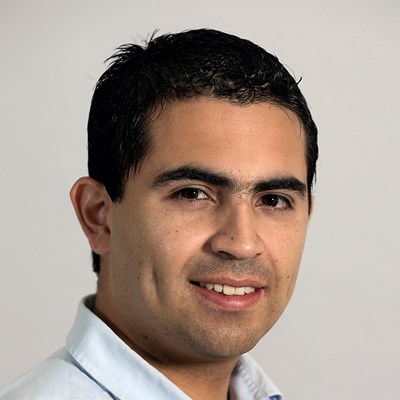
Biography
Mario Guajardo is an Associate Professor at NNH Norwegian School of Economics. He received his PhD in Management Science at NHH in 2013. Previously, he graduated as Civil Industrial Engineer and Master in Operations Management at the University of Chile. His research interests include operations research, collaborative logistics, natural resource supply chains, game theory and sports scheduling.
Operations Research Transformed the Scheduling of South American World Cup Qualifiers: Did it Improve Fairness?
Every four years, the 10 national teams of the South American Football Confederation (CONMEBOL) compete in a double round robin tournament for qualifying to the final phase of the FIFA World Cup. After using the same mirrored schedule for about 20 years, CONMEBOL decided to change the schedule for the 2018 World Cup. A new template schedule was constructed based on an integer programming approach. Most criteria considered in this approach aimed at improving the fairness of the tournament. This talk will describe this approach and compare the implemented solution against the one used for previous world cups. With the 2018 qualification recently finished, the talk will also provide a retrospective look to the results of the tournament to attempt answering empirically whether the schedule improved fairness or not.
Venue
The workshop will take place at the Faculty of Economics and Business Administration of the Ghent university (Tweekerkenstraat 2, Ghent; room "Raadzaal" on the second floor).
